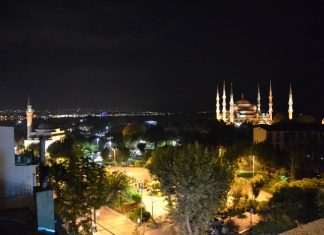Finally, there were matters emperors were incapable of understanding, or understood but rarely. Chief among them were religion and economics. No one—unless we make an exception for the satirist Lucian, who came from the border town of Samosata in Syria in the second century—had a place outside the world of religious experience and practice from which to contemplate the effect on empire of emperors’ various religious enthusiasms. Constantine undoubtedly thought the Christian god would help him, and may even have thought that there were already enough Christians to be a political force. After him, emperors too often made their own religious choices for statesmen based on the worst of impulses: their own theological judgments.
In the fifth and sixth centuries, we have seen the sequence of emperors distracted by Christological debates and then, as Justinian loomed, the increasingly strenuous and destructive expectation that the emperor’s fol-lowers would propagate his faith to the borders of his realm, that loyalty to the state entailed loyalty to a creed. In moments of zealotry, such a tactic might have been a short-term blessing for the monarch. In the long run, adding an unnecessary and irrelevant criterion for the loyalty of one’s subjects, a criterion depending on unprovable and deeply suspect beliefs that are an object of controversy on all sides, surely weakens the political consistency and functional loyalty of a society.
Roman emperor had a reasonable idea
Emperors also flunked basic economics. No Roman emperor had a reasonable idea of the prosperity of his realm, or its diminution, except in the most general terms and mainly long after the fact. Reports of annual harvests dominated imperial thinking about economies in a manner proportional to the urgency of feeding a population but disproportional to their role in the aggregation and use of wealth for other purposes. No emperor could say, if asked, what steps he or his government might take to improve or weaken the economic fortunes of a region or of an empire, except that conquest of neighbors might provide plunder and imported wealth, and that tax relief would make the emperor popular istanbul daily tour.
The backwater western provinces were happy pigs in clover if they had good years, but they were baffled otherwise. Some western regions, notably southern Gaul and much of Africa, were fortunate enough to be blessed more often than not. Salvian of Marseilles in the fifth century wrote a stinging polemic about an empire that “dies and laughs at the same time,” with enough remarks about the injustice of landlords to attract the attention of social historians; but on close examination, even Salvian is without a clue about the true forces at work. The emergence of cities, trade, and prosperous populations with a stake in the economic fortunes of their regions and their ablity to do anything—even on a purely personal or local scale—to advance those fortunes simply did not come to mind for anyone. The prosperity of the eastern provinces, moreover, was the legacy of political and social developments favoring self-aware and self-contained city communities going back to the city-state models of ancient Hellas. The best that can be said of Rome in the eastern Mediterranean is that it did not destroy what it stumbled on there.
It is a miracle, therefore, that Rome survived as long as it did as coherently as it did; we need to keep that perspective in mind alongside the more familiar line of interpretation that Rome could have lasted forever.
To the greatest extent possible
So where did Justinian go wrong? What should he have done? To the greatest extent possible, I try to take what I say here from examples that were known or knowable in Justinian’s world, seeking to minimize the curse of hindsight. Justinian did not have the advantage of calling on John Maynard Keynes, Angelo Roncalli, or Alan Greenspan to bring economic or religious enlightenment to his world. But here are four suggestions he could have heeded Antioch and the larger Egypt behind Alexandria.
First, he should have made peace at the eastern frontier on a basis of agreed spheres of influence and a common interest in trade. Greed and pride held Justinian back from this kind of rapprochement, with the result that in all the histories of his own realm, it is Khusro, Persia’s ruler, who comes across as the enlightened modern leader. It would not have hurt in the least had Justinian bestirred himself from Constantinople, as emperors used to do, and made his way to the eastern front. Such a dramatic encounter of mutual respect and shared ambition would have shaken the expectations of men across two-thirds of Eurasia. Khusro would have welcomed Justinian, for he was said to have kept three thrones empty and waiting by his own: one for Rome’s emperor from the west, one for China’s from the east, and one for the king of the Khazars in the north, would they but deign to visit.








